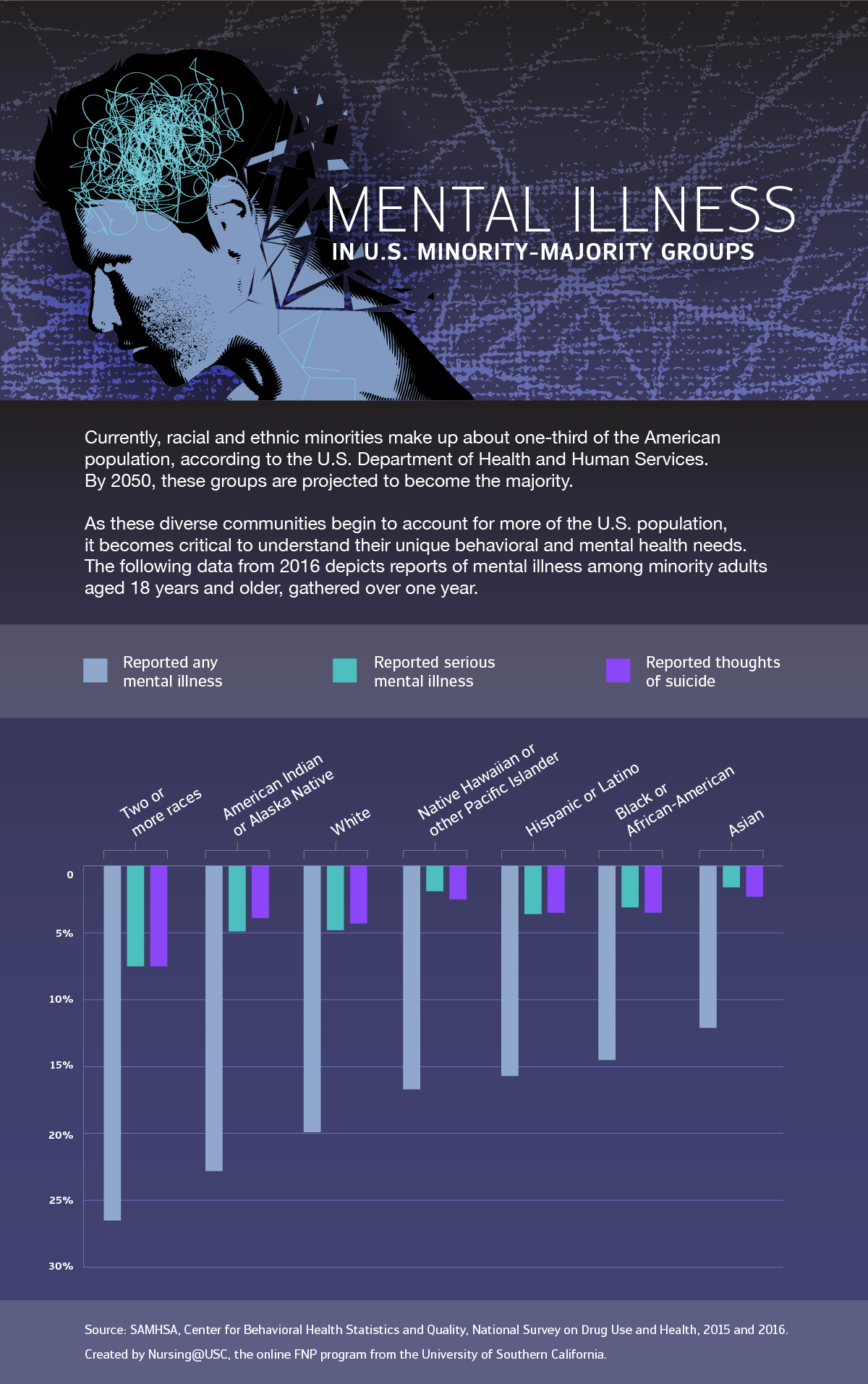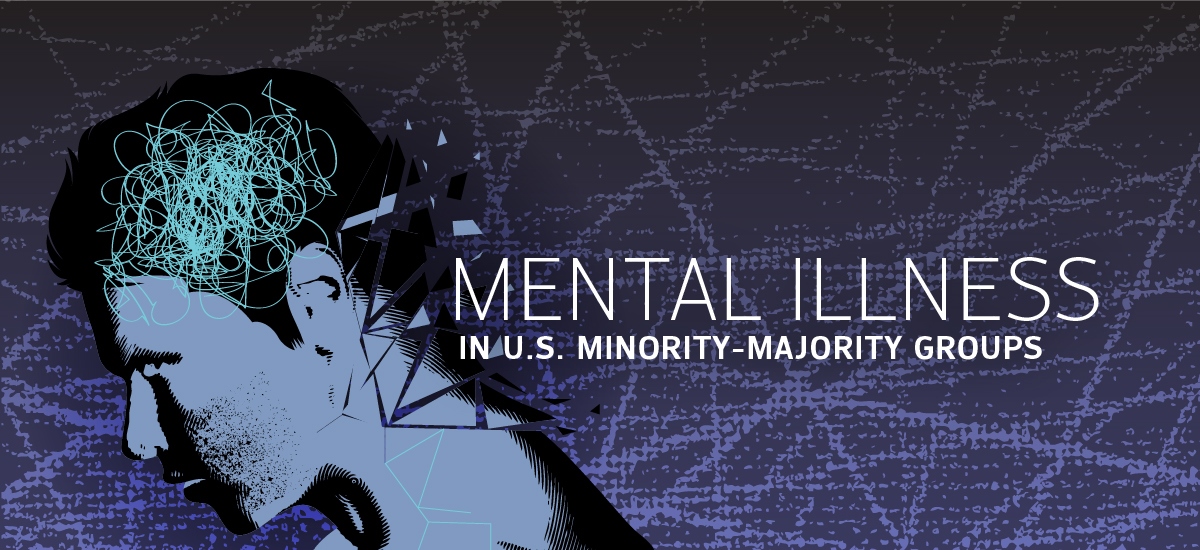July is Minority Mental Health Awareness Month, a month that aims to bring to light the unique struggles that underrepresented groups face with regards to mental illness in the United States. These groups include racial, ethnic, cultural minorities as well as LGBTQIA+ and refugee and immigrant populations.

These minority groups face more barriers and challenges when it comes to social determinants of health as well as access to healthcare in general, which in turn significantly impacts their mental health, more so than non-minority groups. Despite advances in health equity, disparities in mental health care persist. The Agency for Healthcare Research and Quality (AHRQ) reports that racial and ethnic minority groups in the U.S. are less likely to have access to mental health services, less likely to use community mental health services, more likely to use emergency departments, and more likely to receive lower quality care. Poor mental health care access and quality of care contribute to worse mental health outcomes, including suicide, among racial and ethnic minority populations.
In addition to barriers around accessing mental health care and social determinants of health, minority groups often face overwhelming stress in the form of discrimination and prejudice. These experiences not only lead to physiological stress in the body, but contribute significantly to mental health outcomes such as worsening depression and anxiety, thus further highlighting the health disparities between minority and non-minority group.
The struggles of these groups have only been exacerbated by the current pandemic. While the psychological effects of this pandemic are prevalent across all populations, we know that inequalities that contribute to gaps in health insurance coverage, lower access to healthcare services and poorer health outcomes are much more predominant among minority groups.
Resources:
-
-
- Mental Health America: Infographic – BIPOC & LGBTQ+ Mental Health
- American Hospital Association: Focus on Mental Health Care & Access to Services for Diverse Communities
- Talk Space Blog: Understanding Minority Stress Model
- Blog: Mental Health in Minorities & Underserved Communities
- Health & Human Services: National Minority Mental Health Awareness
-
